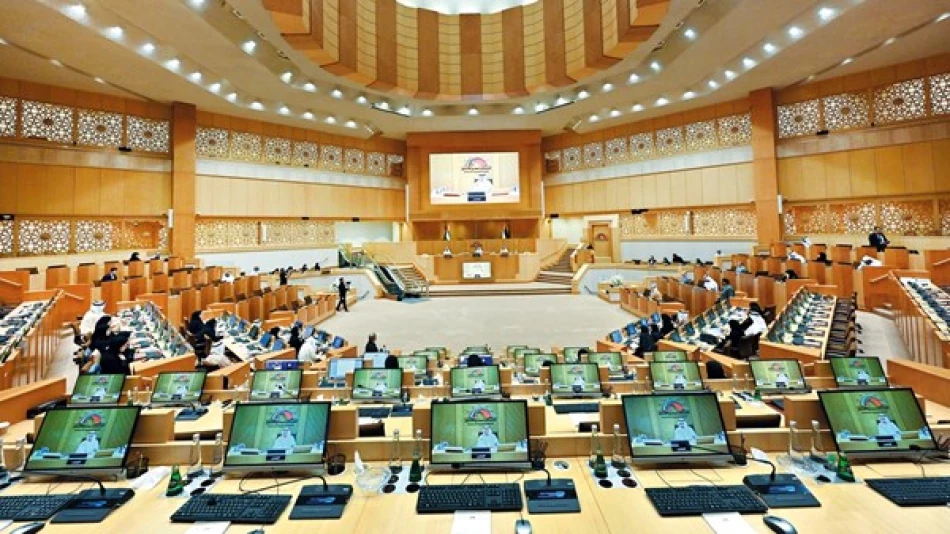
Emirati Women in Federal National Council: Political Empowerment Reflects Partnership and Complementarity
UAE Becomes Global Leader in Women's Political Representation with 50% Parliamentary Quota
The United Arab Emirates has emerged as a global pioneer in women's political empowerment, ranking first regionally and fourth worldwide in female parliamentary representation after implementing a groundbreaking 50% gender quota in its Federal National Council in 2019. This strategic move reflects the UAE's systematic approach to leveraging women's capabilities in governance and sustainable development, setting a new benchmark for political inclusion in the Middle East.
Historic Parliamentary Milestone Sets Global Standard
The UAE's decision to mandate equal gender representation in its Federal National Council represents more than symbolic progress—it demonstrates a calculated investment in human capital that other nations are watching closely. According to the Inter-Parliamentary Union, this achievement places the Emirates ahead of traditional democratic strongholds and establishes it as the regional leader in women's political participation.
The transformation has been dramatic and swift. Women's representation evolved from 22.5% in 2007 to the current 50-50 split, creating a laboratory for gender-balanced governance that provides valuable insights for policymakers worldwide.
Breaking Regional Barriers
The UAE shattered another glass ceiling in 2015 when Amal Al Qubaisi became the first woman to lead a parliamentary institution in the Arab world as Speaker of the Federal National Council. This appointment signaled that the Emirates was not merely meeting quotas but genuinely embracing women's leadership capabilities at the highest levels.
Strategic Vision Behind the Numbers
The UAE's approach differs significantly from other countries implementing gender quotas. Rather than responding to external pressure or social movements, the Emirates' leadership has framed women's political participation as essential to economic competitiveness and national development goals.
This perspective aligns with global research showing that diverse leadership teams make more effective decisions and drive better economic outcomes. Countries like Rwanda and Iceland have demonstrated similar benefits from high levels of women's political representation, but the UAE's model is unique in the Gulf region.
Institutional Foundation for Success
Federal National Council members emphasize that current achievements build upon decades of groundwork laid since the UAE's founding. The systematic approach included educational investments, professional development programs, and gradual increases in political participation—creating a pipeline of qualified women ready for leadership roles.
This contrasts with countries where sudden quota implementations have faced resistance due to insufficient preparation or cultural barriers. The UAE's methodical approach appears to have minimized such challenges while maximizing acceptance and effectiveness.
Economic and Diplomatic Implications
The UAE's gender parity initiative carries significant economic implications beyond domestic governance. As the country positions itself as a global business hub and diplomatic mediator, diverse leadership enhances its credibility with international partners and investors who increasingly prioritize environmental, social, and governance (ESG) factors in their decisions.
The model also strengthens the UAE's soft power projection, particularly as it seeks to influence regional development and modernization efforts. Women parliamentarians have actively represented the country in international forums, including the Inter-Parliamentary Union and Arab Parliament, expanding the Emirates' diplomatic reach.
Regional Influence and Competition
The UAE's success creates competitive pressure on neighboring Gulf states to enhance their own women's political participation. Saudi Arabia's recent reforms, including women's driving rights and increased public sector roles, partly reflect this regional dynamic where countries compete for international recognition and investment based on modernization metrics.
Measuring Real Impact
While representation statistics are impressive, the true test lies in policy outcomes and legislative effectiveness. Council members report meaningful contributions to legislation, national issue discussions, and strategic initiatives, suggesting that the quota system has translated into substantive governance improvements rather than tokenism.
The UAE's experience provides valuable data for other countries considering similar measures. Early indicators suggest that when properly implemented with adequate preparation and institutional support, aggressive gender quotas can succeed even in traditionally conservative societies.
As the UAE continues to navigate its ambitious Vision 2071 development agenda, women's political participation appears positioned as a strategic asset rather than a social obligation—a distinction that may determine the long-term sustainability and effectiveness of these groundbreaking reforms.
Most Viewed News

 Layla Al Mansoori
Layla Al Mansoori






